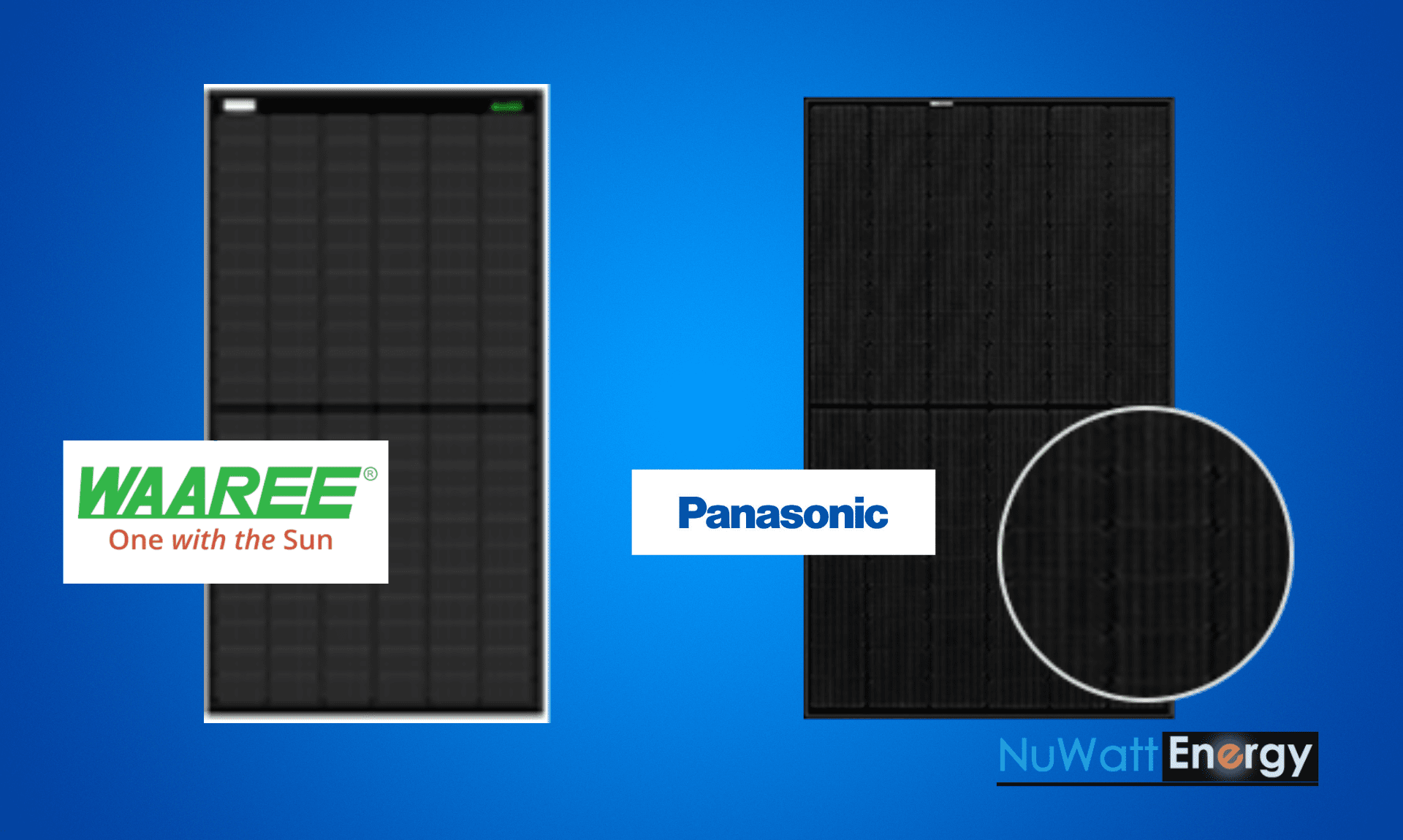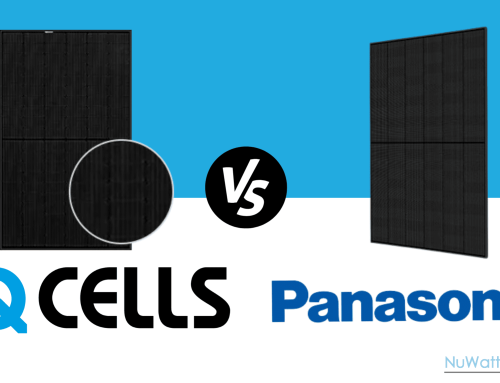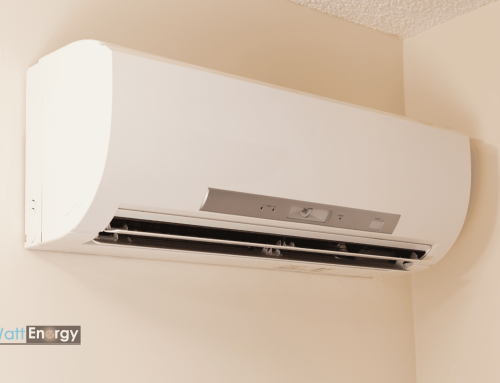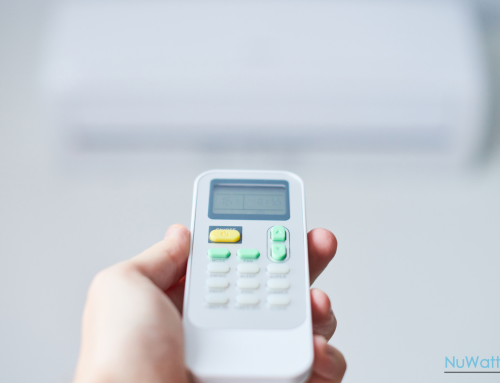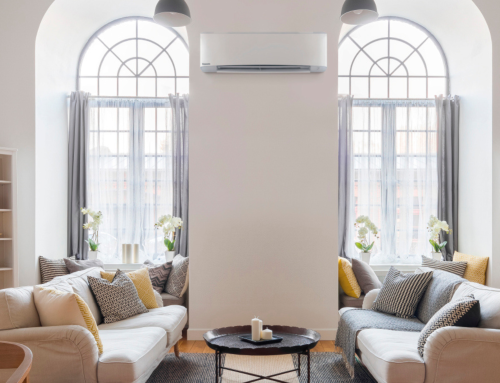When it comes to selecting a solar panel system for your home, it can be overwhelming due to the many factors you need to consider. When researching what makes a solar panel suitable, it’s easy to get lost in all the numbers.
Lucky for you, we’ve done the hard work of breaking down the cost, efficiency, performance, and warranty of both Waaree and Panasonic’s most popular models for rooftop solar. Let’s look at which brand gives you the best bang for your buck.
On this page
About the brands
Waare
Waaree Energies Ltd. was established in 1989 and has since become a leading global provider of solar PV modules and solar energy solutions. Waaree operates as a vertically integrated company, manufacturing solar cells in-house. It recently acquired Indo Solar, which expanded its cell manufacturing capacity to 5.4 GW. Waaree Energies has consistently received a Tier 1 rating from BloombergNEF, indicating the reliability and trustworthiness of its products.
Panasonic
Panasonic has powered American innovations with its dependable and trusted technologies since 1918. Their solar panels are designed uniquely to withstand weather, are easy to install, and offer top-of-the-line performance for extended periods. Panasonic's panels and batteries are built to last and function together seamlessly, providing a comprehensive energy solution for everyday life that is both reliable and efficient.
What do these panels provide for your home?
Waaree and Panasonic panels are both leaders in the solar panel industry, but which model gives you the best value?
The chart below gives a side-by-side comparison of all the specifications between Waaree Energies' U Series WSMD-410 panels and Panasonic’s Evervolt HK EVPV Black 410-Watt panels:
| MANUFACTURER | PANASONIC SOLAR | WAAREE ENERGIES |
|---|---|---|
| MODEL | Panasonic EverVolt HK EVPV Black 410-Watt | Waaree U Series WSMD-410 |
| Company Established | 1989 | |
| PERFORMANCE | ||
| Rated Power (Wattage) | 410 | 410 |
| Resiliency | ||
| Efficiency (%) | 20.53% | |
| Power Output Decline | 0.55% | |
| WARRANTY | ||
| Product Warranty Type | LINEAR | LINEAR |
| Product Warranty Term | 25 YEARS | |
| Output Warranty Term | 25 YEARS | |
| Output at the end of Warranty Term (%) | 83.7 | |
| DIMENSIONS & AESTHETICS | ||
| Cell Type | 1821.0 mm L x 1016.0 mm W x 30.0 mm D | 1924 mm L x 1038 mm W x 35 mm D |
| Panel Dimensions | Monocrystalline Silicon Cells | Monocrystalline Silicon Cells |
Efficiency
Efficiency is an important factor when it comes to selecting solar panels for your home. This refers to the ability of a PV module to convert sunlight into electricity. Since your roof space is limited, it's essential to choose solar panels that can maximize the available space and provide the best return on your investment.
Solar panel efficiency describes the percentage of sunlight a panel absorbs and turns into usable electricity. The industry average for efficiency is anywhere from 18% to 21%, meaning 18% to 21% of sunlight is converted into renewable energy. Premium panels have efficiency ratings of 22% or higher.
The U Series WSMD-410 model from Waaree has an efficiency rating of 20.53%. This rating is pretty standard for a solar panel. Waareee has maintained its efficiency ratings over the years using M6 mono-crystalline PERC cells. This technology has numerous advantages, like higher reliability, reduced power losses of up to 1/4 times, and increased durability.
The EverVolt® HK EPV Black 410-Watt model from Panasonic comes in at a rating of 21.6% efficient, meaning some panels fall into the premium efficiency category. To reach these high-efficiency levels, Panasonic takes it a step further by using heterojunction technology (HJT). HJT cells use layers of different photovoltaic materials to increase power density - which leads to generating more energy in the same amount of space.
Winner: Panasonic. While both offer high-efficiency panels, Panasonic is ahead, bumping it up to premium efficiency status.
Performance
How solar panels will actually perform on your roof is a significant thing to consider when searching for the right panels for your home. One way of measuring performance is by looking at the temperature coefficient.
Believe it or not – the hotter they get, the less power a solar panel can output. The temperature coefficient tells you how much a solar panel’s output will drop as the panel’s temperature increases. In other words – the lower the temperature coefficient, the better your panel is expected to perform as the surface temperature increases.
Waaree models have a temperature coefficient of -0.36%/°K, while the Evervolt series model from Panasonic has a -0.26%/°K coefficient.
Winner: Panasonic. Panasonic’s temperature coefficient is lower than Waaree, meaning Panasonic panels can better handle the heat!
Warranties
Solar panels last for up to 25 years. It’s important to find a manufacturer that will offer good solar panel warranties that will cover you throughout your system’s lifespan in the event of a faulty solar panel. Manufacturers typically offer two warranties:
- Product warranty: covers any defects in manufacturing
- Performance warranty: covers how well the panels produce energy over time
It’s pretty standard for solar manufacturers to offer around a 12-year product warranty and a 25-year performance warranty. Waaree offers a product warranty of 12 years, with a performance output warranty of 27 years. Panasonic offers product and performance warranties well above industry standards, at 25 years each. Solar panels generally come with an output warranty covering the panel's energy production and a materials warranty protecting you against undue wear and tear on your equipment.
For Waaree, the performance warranty states that the U Series WSMD 410-Watt model will put out at least 98% of its total power within the first year, after which the performance will degrade by 0.55% each year. At the end of the 25 years, the panels are guaranteed to perform at 83.7%.
As for Panasonic, the performance warranty states that the EverVolt® HK EVPV Black 410-Watt model will put out at least 98% of its total power within the first year, after which the performance will degrade by 0.25% each year. At the end of the 25 years, the panels are guaranteed to perform at 92%. It's worth noting that the Panasonic EverVolt® HK EVPV Black 410-Watt solar panel goes the extra mile with additional certifications in IEC 61215 and IEC 61701.
Panasonic provides a comprehensive TripleGuard warranty that covers product, performance, and labor for 25 years for panels installed by authorized installers. Additionally, the AllGuard warranty expands this coverage to include Enphase microinverters, racking, and monitoring system components, all of which are eligible when installed by an Elite Panasonic Installer like NuWatt Energy.
Winner: Panasonic. With a better performance guarantee and the AllGuard and TripleGuard warranty offers, Panasonic’s coverage is better than Waaaree.
And the winner is...
The two models were fairly neck-and-neck when it comes to durability and high-quality panels. Getting a headstart on understanding your solar system empowers you to make a choice for your energy future without having to worry about unknown factors.
When it comes down to the overall package, go with Panasonic. They have great specs and an excellent performance guarantee. If you have limited roofing space or value having the best specifications, Panasonic is right for you. Not to mention that their products are widely available.
If an installer quotes you for both panels, consider what’s most important to you: the best value or the best specifications. Either way, Panasonic panels are high quality and are sure to lower your electricity bills. Check out our solar calculator to better understand how much solar panels can save you.
Why are people going solar in 2023?
Solar energy is gaining popularity in 2023 due to its financial and environmental benefits. Solar panel costs have decreased, making it a wise decision for homeowners and businesses, resulting in significant savings on electricity bills and earning incentives or tax credits. Panels often pay for themselves within a decade, leading to long-term savings and sometimes free electricity.
A recent study by Forbes has revealed that 19% of Americans have either already installed solar panels or are in the process of doing so. Even more interestingly, among the remaining 81% of respondents, 48% expressed a strong intention to install a solar energy system. Recent studies have shown that homeowners are increasingly recognizing the advantages of using solar energy, which is becoming more and more popular in the United States. These findings emphasize the need to consider solar power as a feasible and cost-effective alternative to traditional energy sources.
What you should know before going solar
There are many options available when it comes to solar panels. They come in different sizes, qualities, prices, and features. The best solar panels for your home may not be the best fit for your neighbors' homes. Consider the following criteria to determine which will best meet your needs.
Solar Panel Efficiency
The efficiency rating is a percentage that reflects the productivity of individual solar panels. The current average efficiency rating for residential panels is around 18%. High-performance solar panels have efficiency ratings of over 22%, while budget products come in at approximately 16% efficiency.
Not every home requires the highest efficiency rating possible. Your budget, energy needs, and available space will help determine an acceptable efficiency range. Remember that solar panel efficiency degrades somewhat over time when shopping.
Panel Wattage
When you're considering installing solar panels, it's crucial to ensure that the amount of energy they produce is equal to or greater than the energy they replace. The efficiency of a solar panel is determined by its ability to convert energy, while its power output is measured in watts. Modern residential solar panel systems typically generate between 250 and 400 watts of power per hour. Although it's usually recommended to go for higher-wattage panels, it's important to consider your budget and energy requirements before deciding on the appropriate wattage output per panel.
Temperature Coefficient
Solar panels are rated by a coefficient that measures their efficiency loss as temperature increases. This rating is expressed in negative percentage numbers. A solar panel with a lower temperature coefficient rating performs better in hot weather than a panel with a higher coefficient rating. Although panels with a low coefficient rating are essential in hot-weather locations, they can also perform better in places that experience significant temperature swings.
Solar Panel Costs
The cost of a solar energy system for a home can vary greatly, with an average cost of approximately $16,000. However, prices can range from $3,500 to over $35,000 depending on the installation and panels used, not including any tax rebates. It's important to keep in mind that the quality of the panels can affect their cost, as well as the features and capabilities of the system's individual components. When searching for solar panels, selecting ones that offer the best return on investment by lowering energy bills while still being within your budget is essential.
Your Home Power Needs
Depending on your family’s energy use, you may need a home solar system that generates more or less electrical power. Ensure that your system will generate enough electricity during the day and, if desired, enough power storage to get you through each night. Some solar users opt for systems large enough to generate just enough power to meet some of their needs, while others choose systems that allow them to live off the grid or even sell power back to their local energy provider.
Check Solar Panel Warranties
The standard warranty for solar panel brands is typically 25 years. However, warranties for vital system components such as batteries, inverters, and other parts vary significantly between products and manufacturers. It is important to pay attention to these warranties, as well as the panels’ output warranty after 10 and 25 years, especially if you intend to live in the same house for an extended period of time. Be sure to keep an eye out for both the performance warranty and manufacturer warranties.
Installer Recommendations
Solar energy systems and solar panel systems are constantly evolving and improving. When making your purchase decisions, ask others with experience owning the system you’re considering about what they’ve learned. Also, keep an open mind to recommendations from solar companies like NuWatt Energy regarding your energy needs. In an ever-changing industry, there’s always new information that could be beneficial.
Available Roof Space
When selecting solar panels, it's crucial to consider the size and orientation of your roof or yard. This is a key factor that can influence the type of panels that are suitable for you. If you have limited space, it's advisable to opt for fewer panels with higher wattage and efficiency. Conversely, if you have abundant space, you can capitalize on having more panel quantity and power alternatives.
Check Solar Panel Reviews
Solar power used to have a limited number of customers who could offer their insights. However, due to the increasing popularity of this renewable energy source and the time consumers have had to evaluate their systems, the situation has changed. Nowadays, you have easy access to online reviews that cover everything from solar panel brands and models to installers, systems, storage, and other components. These reviews are extremely valuable and can help you make an informed decision about your investment, ensuring the best possible outcome.
How do solar panels work?
When the sun shines on your solar panels, several processes begin: Sunlight hitting the solar panel causes the semiconductors to get excited, which results in the release of electrons from atoms. This process generates an electrical current that combines with the energy produced by other panels and is then collected and converted into usable AC power.
You can use this power to run your home or store it in batteries by converting it back into DC power for later use.
The different types of solar panels
There are three main types of solar panels, each converting sunlight into power at a different rate. Here's a look at the three types:
- Monocrystalline panels are the most efficient type of solar panel, with an efficiency range of 17% to 22%. They are made from a single silicon ingot sliced into thin wafers and are generally priced between $1 to $1.50 per watt.
- Polycrystalline solar panels typically range from 15% to 17% efficiency and cost between 90 cents and $1 per watt, making them a more affordable option.
- Thin-film solar panels are relatively inefficient and less expensive, making them a popular choice for commercial installations with 10% to 13% efficiency and a cost of $1 to $1.50 per watt.
Most residential solar panels – upward of 90%, according to the Lawrence Berkeley National Laboratory – are monocrystalline models (named for the silicon their solar cells are made from). They typically produce more electricity and offer a better return on investment than polycrystalline or thin-film solar panels, their less common counterparts.
How efficient are solar panels?
When it comes to solar panels, efficiency is a crucial factor to consider. Essentially, efficiency refers to the ability of a panel to convert sunlight into usable electricity.
Back in 2007, the average efficiency of solar panels was around 5%. Thanks to advancements in photovoltaic technology, the efficiency of solar panels has improved and is currently between 15% and 22%. High-efficiency solar panels can even reach nearly 23%. As a result, 370W is the typical power rating of a panel, an improvement from 250W. Two factors go into determining solar panel efficiency: photovoltaic (PV) cell efficiency and total panel efficiency. When choosing solar panels, it is essential to consider factors such as your budget, energy needs, and available space to determine the acceptable efficiency range. Also, keep in mind that solar panel efficiency degrades somewhat over time.
For this reason, it's important to select components with high-efficiency ratings to maximize the benefits of solar power.
Panel efficiency
The efficiency of photovoltaic cells depends on various factors such as design, silicon type, physical dimensions, arrangement, and structure. Considering all these elements is crucial for achieving optimal results.
Cell efficiency
The efficiency of a solar panel is calculated by dividing its maximum power output under standard test conditions by the total area of the panel in square meters.
How much power do solar panels produce?
Solar panels can produce 250-400 watts per hour, generating 1,500-3,200 watt-hours of electricity in 6-8 hours of sunlight. However, ideal conditions are rare.
The performance of a solar panel system is usually measured by its average power production. To meet the energy needs of a typical family that consumes 10,000 kilowatt hours annually, a system of 20 to 30 solar panels is needed. A standard solar battery can store energy for up to six days.
How long do solar panels last?
Solar panel warranties typically guarantee a minimum production level for 25 years, ranging between 85% and 92% of the original production. It is crucial to keep in mind that solar panels degrade at a slower pace and can continue to produce power beyond the warranty period. In fact, some manufacturers now offer extended warranties for up to 30 years, which is great news for those seeking sustainable and long-lasting energy solutions.
What impacts solar panel performance?
The efficiency of solar panels is influenced by various factors determined by in-lab performance tests, such as the type and size of the panel, its orientation, level of cleanliness, the amount of sunlight it receives, the components of the system, and the temperature.
Panel Type and Size
When selecting solar panels for your home, it's important to consider their size and type, as these factors play a crucial role in determining their effectiveness and electrical output. Monocrystalline solar panels are considered the best option for residential purposes due to their high efficiency. Additionally, larger solar panels can generate more electricity by harnessing the sun's power.
Orientation or Angle
The performance of solar panels is affected by their orientation and angle since they rely on sunlight exposure. To optimize their efficiency, pointing them toward the south at an angle corresponding to the property's latitude is recommended. Any deviations from this may result in decreased sunlight hours and reduced energy generation.
Cleanliness
Solar panels are exposed to airborne dust and debris, including bird droppings, which can reduce the amount of sunlight reaching them and cause them to operate less efficiently. When significant dust accumulates, the efficiency of the solar panels can drop by up to 6%. While rain can help wash away some dust and debris, it is important to regularly clean the solar panels, regardless of the weather, to maintain their performance.
Sunlight
The amount of sunlight that falls on solar panels is not the only factor that affects power generation. The quality of sunlight is also crucial, as shade, dust, snow, improper orientation, and thin or thick clouds can all hurt the performance of a solar power system.
System Components
After energy production, it needs to be converted and utilized or preserved for later use. Every part of a solar energy system consumes some of the electricity generated, and each component's efficiency impacts the system's overall performance.
Temperature
The efficiency of solar panels is greatly affected by temperature, particularly heat. As solar panels' internal and surface temperature increases, their ability to produce electrical energy decreases. This means that the hotter they become, the less power they generate.
Solar panels should operate within a temperature range of 60 to 90 degrees Fahrenheit to achieve optimal efficiency. Their efficiency rating is determined in a laboratory setting at 77 degrees Fahrenheit. The temperature coefficient rating of a panel indicates the percentage of efficiency lost for every degree above 77 degrees Fahrenheit or 25 degrees Celsius.
Other electrical components
When solar panels generate electricity, the power doesn't travel directly from the panels to appliances like your toaster. Instead, the electricity is first converted from direct current (DC) to alternating current (AC) by an inverter. Unfortunately, this process isn't perfect and some power is lost due to inefficiencies in the inverter and other electrical devices that distribute the power. As a result, the amount of electricity that reaches your toaster is less than the amount generated by the solar panels.
If you need help selecting the best option for your system, let NuWatt Energy help. We'll create a custom estimate of the solar cost and savings for your home, free of charge!
Still not sure about which solar panel to go with? Check out some of our other comprehensive panel guides and learn about the real cost of going solar.
More reading on NuWatt Energy
Looking to go solar? Here’s everything you need to know
What are the most efficient solar panels? Top brands in 2023
The top heat pump manufacturers of 2023
